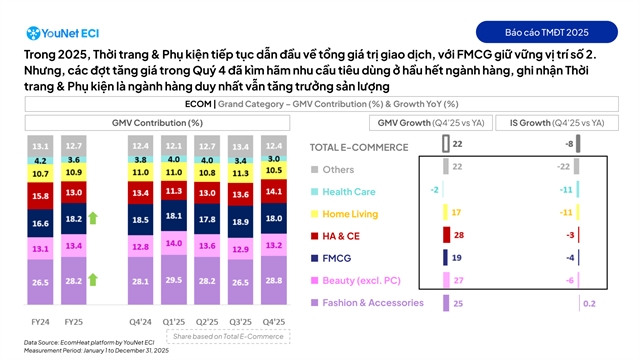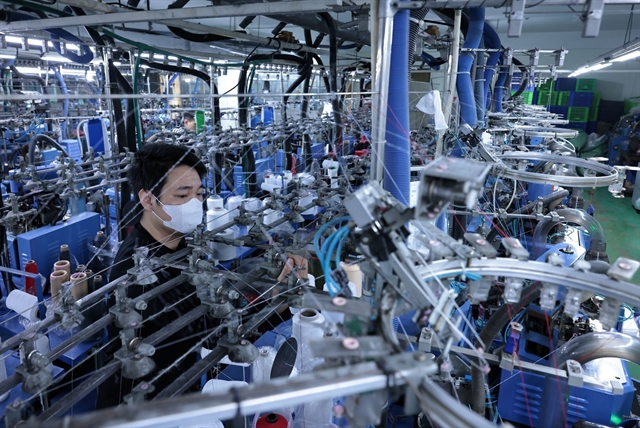 World
World

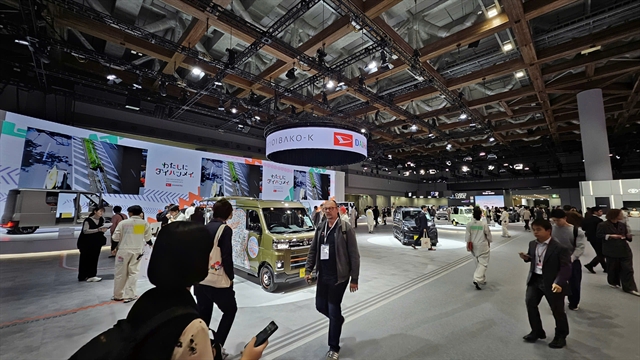
|
| People attend the Japan Mobility Show 2025 on October 30. — VNS Photo Ly Ly Cao |
Ly Ly Cao
TOKYO — The mobility landmark organised by the Japan Automobile Manufacturers Association (JAMA) is back and bigger than ever.
The Japan Mobility Show 2025 (JMS 2025) kicked off at Tokyo Big Sight on October 29 with press days on October 29 and 30 and opens to the public from October 31 through November 9.
According to JAMA, the theme this year is 'A unique opportunity to explore mobility’s future.'
As of mid-October, the show welcomed a record 517 companies and organisations including 42 from overseas, surpassing previous editions.
The scale of what is on display at JMS 2025 reflects the shifting paradigm in mobility from just cars to an inclusive 'mobility ecosystem.'
Automakers such as Toyota, Honda and Lexus unveiled a range of world and Japan premieres. Century, newly positioned as Toyota’s flagship brand, revealed its brand concept and a coupe-style concept model.

|
| Century's model displayed at the show. — VNS Photo Ly Ly Cao |
Honda displayed its future EV series under the '0 Series' banner: the Honda 0 Saloon, Honda 0 SUV and Honda 0 α SUV prototype, alongside the small EV 'Super-ONE Prototype.'
According to Takumi Kawabe, Executive Coordinator of Corporate Affairs and Communications at Asian Honda Motor Co., Ltd., the Honda 0 Series represents a new philosophy in electrified mobility, combining human-centred design with intelligent software.
The lineup integrates Asimo OS, a new operating system named after Honda’s pioneering humanoid robot.
"The new software learns your preference of the driving comfortability and so forth," Kawabe explained.
"You can personalise the driving experience for your car."
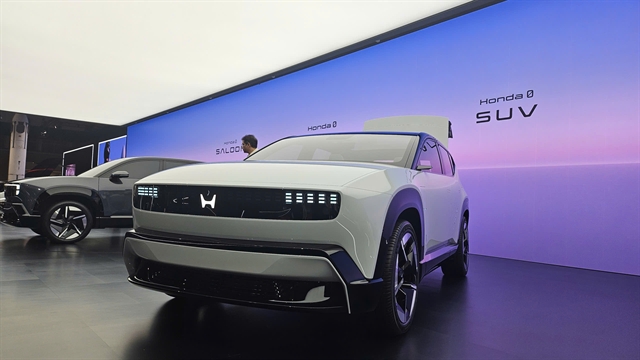
|
| The Honda 0 Suv is expected to be introduced to the Vietnamese market in the future, Kawabe told Việt Nam News and Law. — VNS Photo Ly Ly Cao |
The Asimo OS uses machine learning to adapt vehicle behaviour to individual drivers, marking a leap from traditional mechanical engineering towards AI-driven mobility experiences.
ASEAN markets, including Việt Nam, are playing a crucial role in Honda’s long-term mobility roadmap.
Honda's strategic patience in EV development, observing global adoption trends before scaling up, appears to be paying off as Southeast Asia accelerates its transition towards electrification.
"I believe that in Việt Nam, especially, the government is keen to introduce battery electric vehicles (BEVs)," Kawabe said, emphasising the need for stronger public infrastructure.
"You need government support to expand the charging station networks."
He added that the company will also soon introduce hybrid vehicles to the Vietnamese market.
The company aims to leverage its trustworthiness and lifecycle approach to stay competitive.
"We think always on a life cycle basis. We will continue to make evolutions for the cars on the market," Kawabe added.
Beyond vehicles, JMS 2025 emphasises cross-industry collaboration. The 'Startup Future Factory' programme features 150 startup booths, a pitch contest and awards scheme, and a "Meet-up Box" online tool to match startups with established businesses. — BIZHUB/VNS
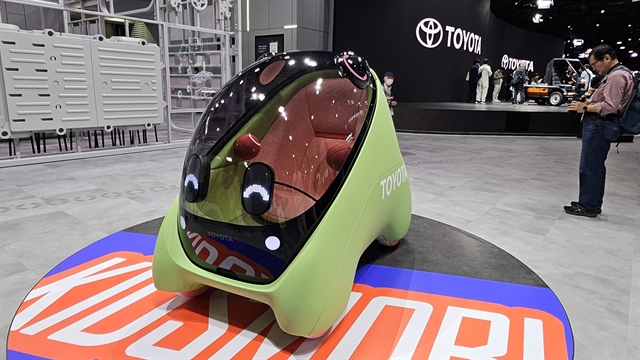
|
| Toyota's model displayed at the show. — VNS Photo Ly Ly Cao |

|

